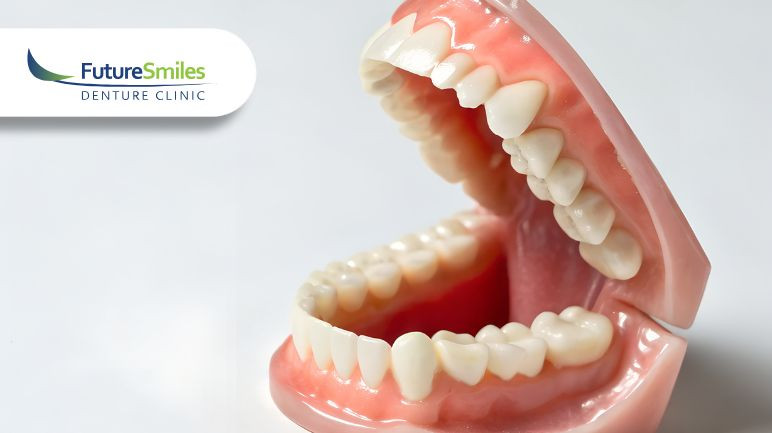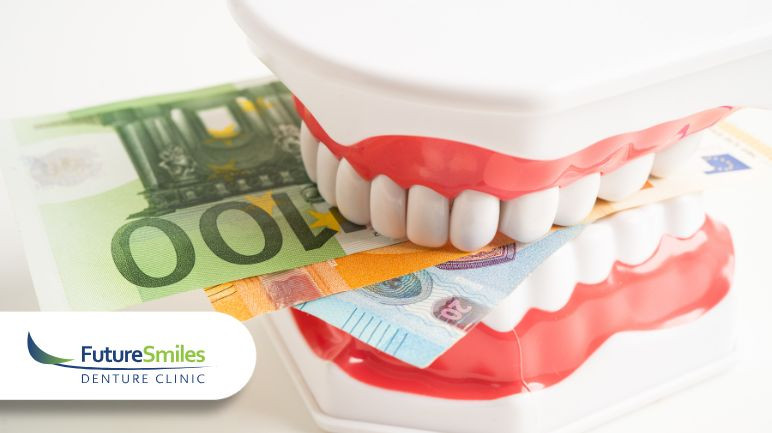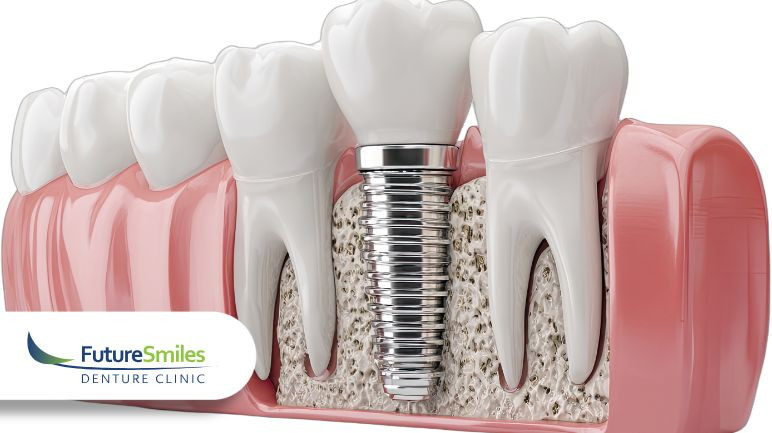Traditionally, for patients who required a tooth-loss solution, the most commonly used methods were full or partial dentures. However, with the incredible advancements in technologies & techniques, a more natural-looking and durable option is now available.
A denture implant is a type of overdenture that is supported by and attached to implants, unlike full/partial dentures which sit directly on a patient’s gum. This provides many benefits including:
- Better comfort & fit
- No speech problems
- Longer lifespan
- They never slip out of place
- No diet restrictions
At our Calgary clinic, our skilled and experienced denturists offer a wide range of tooth replacement options to suit all your individual requirements and ensure that the health & beauty of your smile is restored as soon as possible.
Am I a Candidate for Denture Implants?
While denture implants are a great alternative to full/partial dentures, they are not suitable for all patients. When selecting your tooth replacement option, it’s important to keep in mind that there are factors which could affect your denture implant candidacy including:
- Inadequate bone structure
- Presence of periodontal disease
- Bite complications
- Whether or not you’re a smoker
- If you are taking medications such as blood thinners
During an in-depth consultation with your local Calgary denturist, they will be able to best determine whether or not you are a suitable candidate for this tooth replacement option.
What to Expect from the Denture Implant Procedure
While the denture implant procedure can be more extensive than fitting full/partial dentures, when performed by an experienced denturist, it is a relatively straight forward and simple treatment that will yield excellent results.
Step 1
During this time, talk to your denturist about a temporary tooth replacement option which can be worn over the implant sites.
Step 2
In most cases, a second step is necessary to uncover the implants and add extensions. These temporary healing caps, along with various connecting devices, complete the foundation on which your new teeth will be replaced.
Depending on the number of implants placed, the connecting device that will hold your new teeth can be tightened down on the denture implant or it may be clipped to a bar to which the partial denture snaps on and off.
Step 3
After a short healing period, you will experience restored confidence in your smile and your ability to chew and speak.
Caring for Your Denture Implants
Just like natural teeth that must be brushed regularly to stay in good condition, your denture implants must be cleaned carefully every day. That being said, denture implants also differ from your natural teeth.
To clean them effectively between visits to your denturist, there are some special techniques you should know about.
1. Brushing
When brushing around your denture implants, be sure to use a soft toothbrush. They should be brushed at least twice a day and while electric brushes can be used, manual ones reduce the likelihood of irritation.
2. Mouthwash
Your denturist may recommend antibacterial mouthwash if you have had any implant-supported denture work done. This can be used to combat any existing inflammation or in cases where a patient may have difficulty with flossing.
3. Flossing
Talk to your denturist about implant-specific floss. Unwaxed dental tape may also be appropriate. Many patients who have denture implants find that they can enhance their flossing regimen by using non-metal oral irrigators.
4. Other Techniques
Interdental brushes and ‘soft picks’ are also recommended to improve cleaning between the teeth. This is especially for the areas where it’s difficult to reach with a toothbrush. They should be used at least twice a day following regular brushing.
Importance of Visiting Your Denturist
Not only does a denturist have the specialized tools for effective cleaning, they can also check the health of the tissue surrounding your denture implants, ensuring proper blood flow and other factors.
Call Today
To find out more about the costs and benefits of our tooth replacement options from partial dentures to denture implants, contact our Calgary denturist at (403) 475-0016 or fill in our online contact form.






